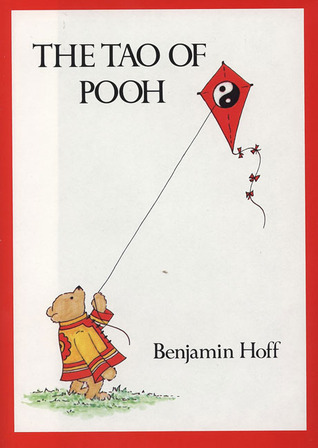Chapter 1: Foreword
byForeword: The journey of writing often begins not with a grand plan, but with a curious spark. When Pooh notices Benjamin Hoff writing, his innocent interruption becomes the foundation of something greater. Hoff, trying to explain his book, declares it’s about staying peaceful and content no matter what. Pooh, with his usual calm demeanor, challenges this idea not by argument, but with a simple question—whether Hoff has truly understood the lessons he’s writing about. That question hits deeper than it first appears. Hoff is forced to reflect on whether knowledge means much if it isn’t lived with sincerity.
The exchange becomes more than just a humorous moment—it sets the tone for the entire philosophy that Hoff wishes to explore. It’s a reminder that wisdom isn’t always found in books or deep lectures. Sometimes, it’s found in the gentle persistence of simplicity. Hoff’s friend once claimed all wise teachers come from the East, an idea rooted in tradition and perhaps a touch of romanticism. But Hoff resists the notion that geography defines truth. In response, he reads a short dialogue between Pooh and Piglet that captures the essence of mindful living.
Piglet looks forward to adventure, while Pooh eagerly anticipates breakfast. Their different thoughts mirror the same underlying appreciation for the day ahead. For Hoff, this was proof that profound insight doesn’t always come wrapped in complex language. Even a stuffed bear can mirror the wisdom of Lao Tzu, without ever using the word “Tao.” When his friend scoffs and says Pooh simply goes on silly trips and stays cheerful, Hoff agrees—but only to make the point that joy and purposelessness can, in fact, be the purpose. The philosophy is embedded not in what Pooh does, but in how he does it.
This realization gives birth to Hoff’s vision: to explore Taoism through the eyes of a honey-loving bear. It was a bold idea, and many academics ridiculed it. But Hoff wasn’t writing to impress scholars—he was writing for people like Pooh, who sense truth even when they can’t explain it. Taoism, after all, speaks of going with the flow, not fighting uphill battles for the sake of approval. Hoff believed the playful tone of Winnie the Pooh was the perfect vessel to carry timeless truths.
The Tao Te Ching, one of Taoism’s core texts, often uses paradoxes and metaphors to teach. Similarly, Winnie the Pooh communicates its messages through lighthearted dialogue and simple situations. This makes the characters more than just figures in a children’s book—they become relatable models of Taoist principles. Pooh, especially, embodies effortless action, known in Taoism as wu wei. He never hurries, rarely worries, and responds to life with curiosity and peace. That alone makes him a quiet revolutionary in a world that celebrates busyness.
Many readers come to the Tao of Pooh expecting a philosophical breakdown. Instead, they are met with soft lessons wrapped in storytelling. Hoff doesn’t just explain Taoism—he shows it in motion. The result is more impactful than dry explanation, especially for those unfamiliar with Eastern philosophy. The characters from Hundred Acre Wood aren’t forced into philosophical roles—they already embody them. Their stories make abstract ideas feel personal and understandable.
Though Pooh appears to act without deep reasoning, that’s exactly the point. His simplicity is not ignorance—it’s wisdom unclouded by overthinking. Hoff recognized that Pooh’s unshakable calm, even during chaos, reflected a profound understanding of how to live well. Taoism teaches acceptance, presence, and balance. Pooh exemplifies all of these by simply being himself. This authenticity is what Hoff hopes to teach—not by telling, but by showing.
By framing Taoist thought through Pooh’s experiences, Hoff bridges the gap between Eastern philosophy and Western readers. He makes something ancient feel accessible. The idea isn’t to turn readers into Taoist scholars, but to nudge them into seeing life a little differently. Instead of striving to be smarter, tougher, or faster, maybe there’s wisdom in just being. That’s a powerful message in a society that constantly pushes for achievement. Hoff reminds us that slowing down might be the most radical choice of all.
And in a time where stress, pressure, and disconnection are common, The Tao of Pooh offers a counterpoint. Its charm isn’t just nostalgia—it’s the way it reconnects readers with values they may have forgotten. Peace, joy, and simplicity aren’t just nice ideas—they’re possible paths to a meaningful life. All it takes is a shift in perspective. Sometimes, the wisest guide isn’t a sage on a mountain, but a bear in the forest with honey on his nose.
Ultimately, Hoff’s work isn’t about proving a theory. It’s about inviting readers into a quiet kind of awareness. Through Pooh’s example, people can begin to trust their instincts again. They can learn to embrace what is, rather than fight for what isn’t. And like Taoism itself, the book doesn’t demand—it suggests. That gentle guidance might be why it resonates so deeply.

